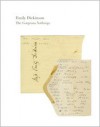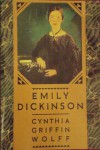Currently reading
Saints in Art
The Gorgeous Nothings: Emily Dickinson's Envelope Poems
Selected Poems
Emily Dickinson
Lies My Teacher Told Me : Everything Your American History Textbook Got Wrong
Gone with the Wind
The Book of Mormon Girl: A Memoir of an American Faith
 Are all autobiographies and memoirs now required to be vague? First Unorthodox, and now this. Both books were written by intelligent women who had something to say and then spent half the book refusing to say it.
Are all autobiographies and memoirs now required to be vague? First Unorthodox, and now this. Both books were written by intelligent women who had something to say and then spent half the book refusing to say it.Look: If I'm reading your story, it's because I want to hear your story. So tell it, already.
If you're a Mormon and a feminist, what does that mean to you? What does feminism mean in the context of Mormonism? You mention that when you were growing up in the Mormon church, twelve-year-old boys got the priesthood and girls got a Marie Osmond beauty manual. You mention the fact that men get the power of the priesthood and women have "the gift of motherhood." You claim that Mormon married women are never supposed to work outside the home (though I've known plenty who do and see no contradiction between paid employment and their faith). And then you stop talking. What does all that mean to you?
You talk about what the church tells girls about sex and sexuality, and hint at flashbacks of sexual abuse. Then you talk about meeting a terrific non-Mormon guy and marrying him. That's it? Was it hard for you to become a fully realized sexual being? Have you managed that, in fact? Did getting close to you in every sense require a lot of patience on his part? If you don't want to talk about sex, fine; but if you tell me a story about getting felt up in a car as a teenager and then having to confess to your bishop and feeling really weird about the fact that the whole time you felt nothing at all, you've made me want to know when (or that) everything clicked for you in that department.
You talk about being terrified of being excommunicated by the Mormon church for your writing, your activism, and your feelings. Maybe that's why so much of this book seems so vague. If you don't give too many specifics, you can't get in too much trouble.
I'm not sure that's a tenable philosophy.








